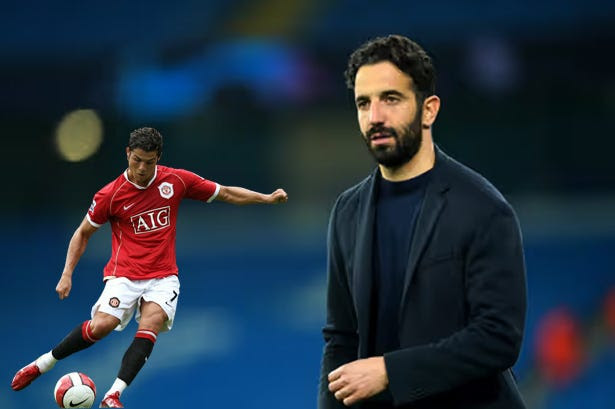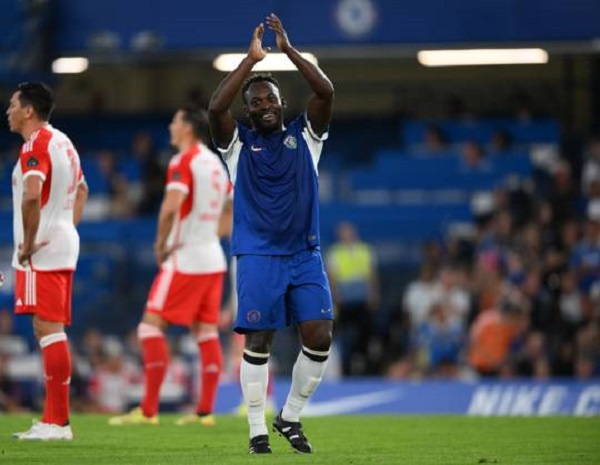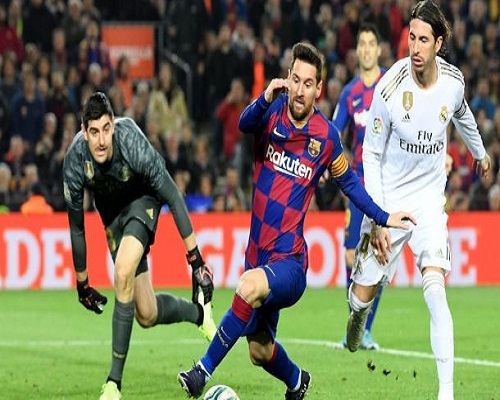Infantino Hails Inaugural FIFA Club World Cup as Historic

The highly anticipated FIFA Club World Cup kicks off today, marking what FIFA President Gianni Infantino proudly declares as a historic “new era” for global football. Speaking in an exclusive interview with AFP, Infantino drew a bold parallel between this groundbreaking 32-team tournament and the very first FIFA World Cup held in 1930, emphasizing its potential to leave an indelible mark on the sport’s history.
The expanded competition, a truly global spectacle featuring elite clubs from every continent, is set to commence with a captivating clash between Major League Soccer’s Inter Miami and Egyptian giants Al-Ahly at the iconic Hard Rock Stadium. This opening fixture is not just a game; it’s the beginning of what FIFA hopes will become a cornerstone event in the international football calendar, fundamentally reshaping the landscape of club football.
“It starts a new era of football, a new era of club football. A little bit like when, in 1930, the first World Cup started. Everyone today speaks about the very first World Cup. That’s why this World Cup here is historic,” Infantino told AFP, his voice brimming with enthusiasm and conviction. His comparison to the 1930 World Cup, which famously featured only European and South American teams, underscores a core philosophy behind the new Club World Cup: inclusivity and globalization.
Embracing Global Inclusivity: A Chance for Non-Traditional Footballing Nations
Infantino elaborated on this vision of inclusivity, highlighting that the tournament is designed to provide unprecedented opportunities for clubs hailing from outside football’s long-established heartlands. For decades, the pinnacle of club football has largely been concentrated within a select few elite European leagues. The FIFA Club World Cup aims to shatter this concentration, offering a global stage to teams and players from diverse footballing ecosystems.
“We want to be inclusive. We want to give opportunities to clubs from all over the world,” he affirmed. “It’s really to globalise football, to make it truly global. Because when you scratch the surface, we say it’s the number one sport in the world, and it is, but then the elite is very concentrated in very few clubs, in very few countries.” This candid assessment reflects FIFA’s ambition to broaden the sport’s appeal and competitive reach, ensuring that talent and passion for football are recognized and celebrated universally, not just within a narrow geographical scope.
The Swiss official, who previously served as general secretary of European football’s governing body UEFA before assuming the presidency of FIFA in 2016, also pointed out the immense opportunities this club tournament presents for individual players. With representatives from over 80 countries participating, the Club World Cup offers a unique platform for athletes from nations that might never realistically qualify for a traditional FIFA World Cup.
“Countries that would never have a chance to play in a World Cup are suddenly part of a World Cup, and they feel part of it – the fans of these players and of these clubs,” Infantino explained. He invoked the powerful example of George Weah, the Liberian football legend, former Ballon d’Or winner, and the only African player to have ever won the prestigious individual award. “A very good friend of mine is George Weah… a former legend, great player, Ballon d’Or winner, the only African player to have ever won the Ballon d’Or. He never played in a World Cup. He would have been playing in a Club World Cup and made not only his club but also his country proud,” Infantino added, highlighting the historical missed opportunities for many great players who, despite their individual brilliance, never graced the ultimate global stage. This tournament seeks to rectify such historical omissions, ensuring that talent, irrespective of national team strength, finds its global platform.
“Something Special”: Addressing Criticisms and Defending Ticketing Policy
Despite the palpable excitement surrounding the tournament, the FIFA Club World Cup has not been without its critics. Concerns regarding fixture congestion and the tournament’s overall value have been raised in various quarters. However, Infantino remained steadfast in his belief, confidently dismissing these concerns and asserting that initial skepticism would quickly dissipate once the matches begin.
“I believe, I’m convinced that as soon as the ball starts rolling, the whole world will realize what’s happening here. It’s something special,” he declared, painting a picture of a competition that will win over hearts and minds through the sheer quality and excitement of the football on display.
Reports of low ticket uptake for some games have also led to scrutiny of FIFA’s ticketing policy, particularly its use of ‘dynamic pricing.’ This system, increasingly common in the United States sports landscape, allows ticket prices to fluctuate based on real-time demand. While this approach can optimize revenue, it has drawn criticism for potentially alienating segments of the fan base.
Infantino, however, mounted a robust defense of FIFA’s strategy, which includes offering significant discounts to students in Miami. “I’m a positive person generally, but they criticise FIFA if the prices are too high, then they criticise FIFA if the prices are too low. Then they criticise FIFA if we make ticketing promotions with students. Students! I mean, when I was a student and didn’t have money, I would have loved FIFA to come to me and say, ‘You want to come and watch a World Cup match?'” he stated, expressing a touch of exasperation at the contradictory nature of some criticisms.
His defense underscores a practical approach aimed at maximizing attendance and accessibility. “We don’t want to see empty stadiums. I believe the stadiums will be pretty full,” he reiterated, signaling confidence in the eventual turnout, particularly as the tournament gains momentum.
Economic Success and Fan Interest: The Reinvestment Model
Beyond the sporting spectacle, the FIFA Club World Cup is already registering as an economic success story. Infantino proudly announced that the tournament had secured a lucrative global broadcasting deal with DAZN, reportedly valued at a staggering $1 billion. This significant financial injection is a testament to the commercial appeal and anticipated viewership of the new competition.
Crucially, Infantino stressed FIFA’s commitment to a model of reinvestment, assuring that “all the money generated from commercial deals would be reinvested in the game.” This commitment aligns with FIFA’s stated mission to develop football globally, with revenues from major tournaments flowing back into grassroots programs, infrastructure development, and competitive opportunities worldwide.
When pressed on how he would ultimately judge the tournament’s success, Infantino offered a heartfelt, yet confident, response. He admitted it would be a feeling in his “heart” but expressed unwavering optimism based on current indicators. “In terms of inclusivity, in terms of economy, in terms of fan interest, take all these criteria, we’ll speak again at the end of the Club World Cup. But already now, I feel positive when I look at the number of tickets sold and the TV rights. Tell me one top competition today where you can watch football for free?” he challenged, pointing out the free availability of games on DAZN’s streams, a strategy aimed at maximizing viewership and accessibility.
Addressing External Challenges: Security and Public Safety
The tournament’s staging in the United States has also inadvertently placed it within the context of broader societal issues, specifically the US’s fierce debates over immigration control. With games being held near Los Angeles, an area that has witnessed violent clashes between protesters and immigration officers, concerns about public safety have naturally arisen.
Infantino acknowledged these external factors and emphasized FIFA’s unwavering commitment to security. “Security for me and for us is a top priority, always. So when something is happening, like in Los Angeles, we are obviously monitoring the situation, we are in constant contact with the authorities, and we want fans to go to games in a safe environment,” he reassured. His statement reflects FIFA’s proactive stance in collaborating with local authorities to ensure that the tournament remains a celebration of sport, free from external disruptions, and that the safety and well-being of all participants and spectators remain paramount.
As the inaugural FIFA Club World Cup gets underway, the world watches to see if Infantino’s grand vision for a more inclusive, globalized, and economically robust club football landscape truly takes root, ushering in the “new era” he so confidently proclaims.
Source: http://thepressradio.com




